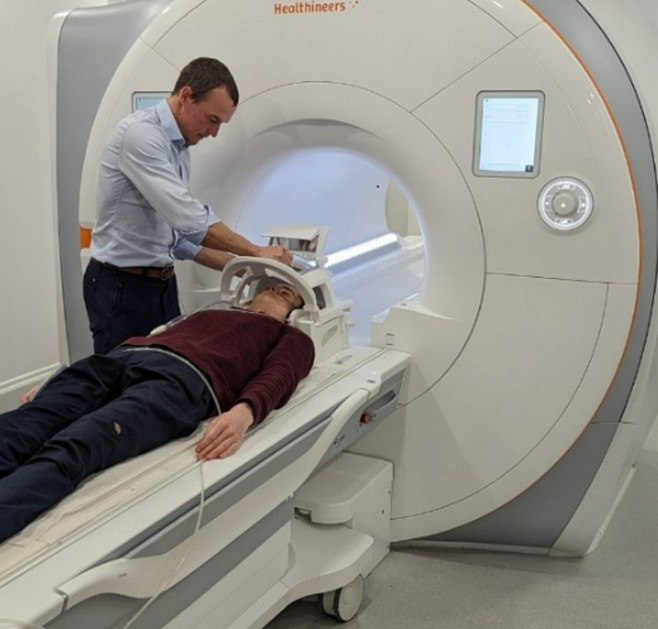You are here
Health Care Science Week March 2023
4 April 2023

In march we celebrated our health care scientists across the regions for Health Care Science Week 2023. We spoke to Mike Hutton, Consultant Clinical Scientist specialising in Magnetic Resonance Imaging Physics (MRI) at the The Christie NHS Foundation Trust about his role and what it is like working in the field.
How did you become a clinical scientist working in MRI physics?
I studied undergraduate astrophysics at the University of Edinburgh, and then trained under the old medical physics training scheme, specialising in MRI. I chose medical physics because I wanted to use my physics degree in a field of work where I could make a positive contribution to people’s health and wellbeing. MRI is just one of many specialisms within the field and I chose it because of the fascinating physics and the seemingly never-ending new things to understand.
What benefits can your role bring to the NHS and its patients?
Over the past year I’ve been supporting the adoption of advanced acceleration technology (AAT) in MRI across North West England with the goal of reducing scan times in MRI. This can benefit patients through shorter scans and will increase the number of patients we can scan without the need to invest in more scanners. Recently my team have been working to enable easier access to MRI for patients with pacemakers.
What’s the most rewarding part of your role?
The way I can directly affect and improve the quality of care patients receive. This can be through providing expert advice that enables patients with complex medical implants to have an MRI scan, or through supporting and leading on the introduction of a new MRI service.
What do we need to do to retain our talented MRI clinical scientists within the NHS?
We’re fortunate in medical physics and in the specialism of MRI that staff find it an interesting and rewarding career so we don’t have a problem with losing staff (or attracting staff into the profession). However, the role is often misunderstood because we’re not normally delivering direct patient care.
Clinical scientists in MRI have a key role in improving efficiency and increasing the number of medical physicists within the NHS. Our main challenge is training enough staff to grow the profession.
This Page was last updated on: 4 April 2023